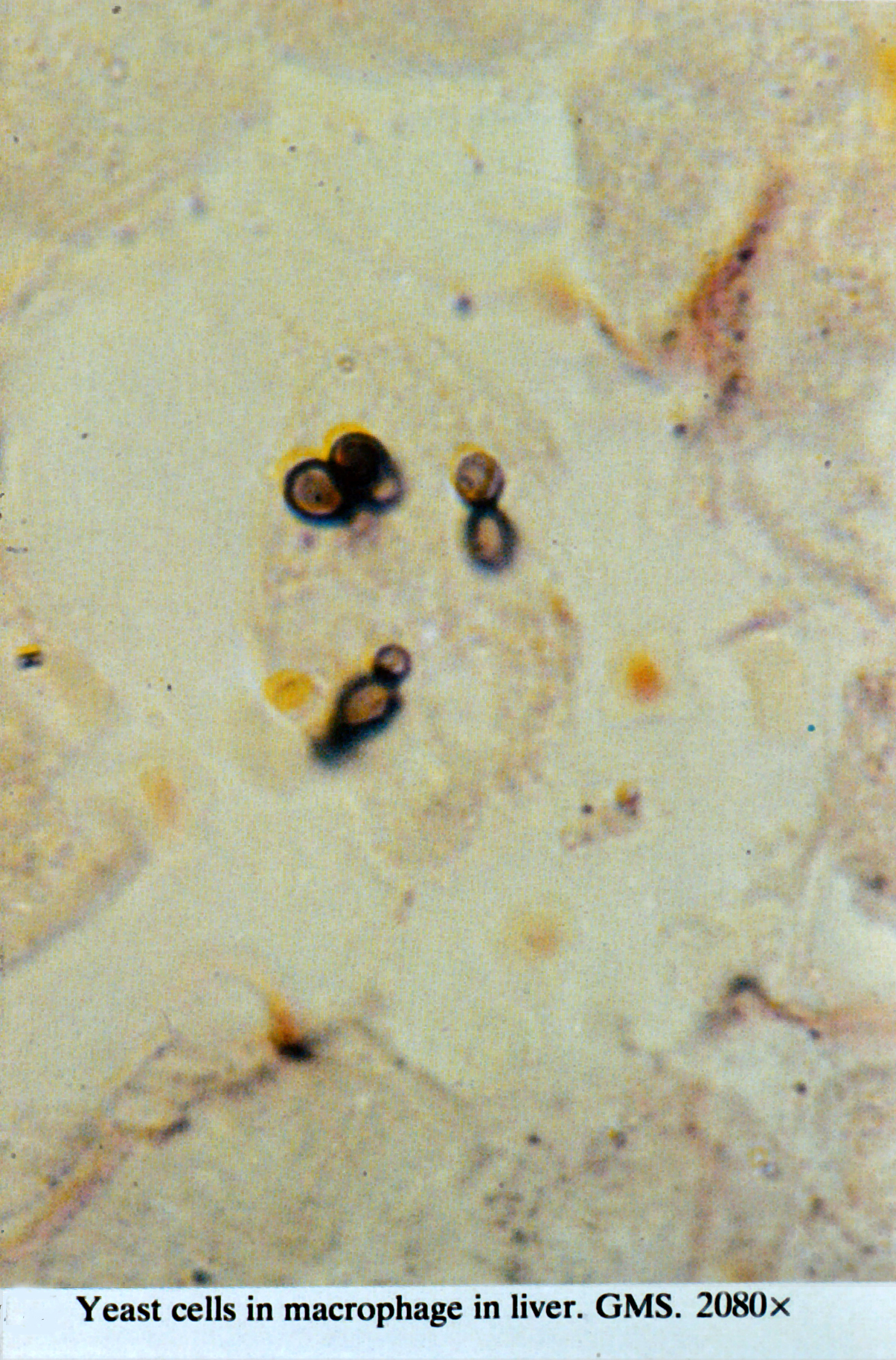Chronic and acute histoplasmosis
Histoplasma capsulatum causes a disease known as histoplasmosis, which usually affects the lungs and causes a short-term, treatable lung infection. Histoplasma capsulatum is found in soil in central and South America, the Carribean and some areas of the United States, mostly in the midwestern and southeastern states and along the Ohio and Mississippi River valleys. It thrives in soil that is enriched with bat or bird droppings. Histoplasmosis is not spread from person to person, instead it is spread through the air. For example, if soil containing Histoplasma capsulatum is disturbed, the fungal spores get into the air and people who breathe in the spores may get histoplasmosis.
The lung infection caused by Histoplasma capsulatum can be short-term and relatively mild (acute), or it can be long-term and serious (chronic). Symptoms of the acute lung infection are tiredness, fever, chills, chest pains, and a dry cough. The chronic lung infection is like tuberculosis and occurs mostly in persons who already have lung disease. It can progress over months or years and can scar the lungs. Persons with mild disease usually get better on their own, but severe cases of acute histoplasmosis and all chronic infections are treated with antifungal drugs such as amphotericin B and itraconazole.
Disseminated histoplasmosis

The fungus Histoplasma capsulatum grows in soil in southern and central America, the Caribbean and some areas of the United States, mostly in the midwestern and southeastern states and along the Ohio and Mississippi River valleys. It thrives in soil that is enriched with bat or bird droppings. Histoplasmosis is not spread from person to person, instead it is spread through the air. For example, if soil containing Histoplasma capsulatum is disturbed, the fungal spores get into the air and people who breathe in the spores may get histoplasmosis.
Disseminated histoplasmosis causes a variety of serious symptoms and can involve all body organs. The liver and spleen usually become enlarged, and sores in the mouth or gastrointestinal tract can develop. Disseminated histoplasmosis can be fatal and occurs most often in infants, young children, and persons with weakened immune systems, such as those with cancer or HIV infection. The most sensitive diagnostic test is an antigen test on urine, or blood. There are probably about 71,000 with this disease globally, but much uncertainty as the antigen test is not available in most of Africa and SE Asia.
Disseminated histoplasmosis is treated with antifungal drugs such as amphotericin B and itraconazole. Read more https://en.fungaleducation.
